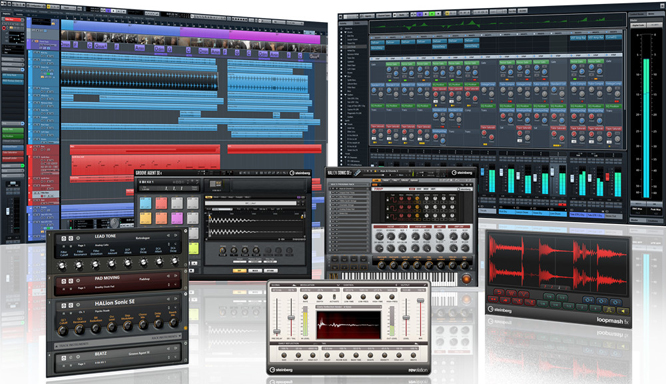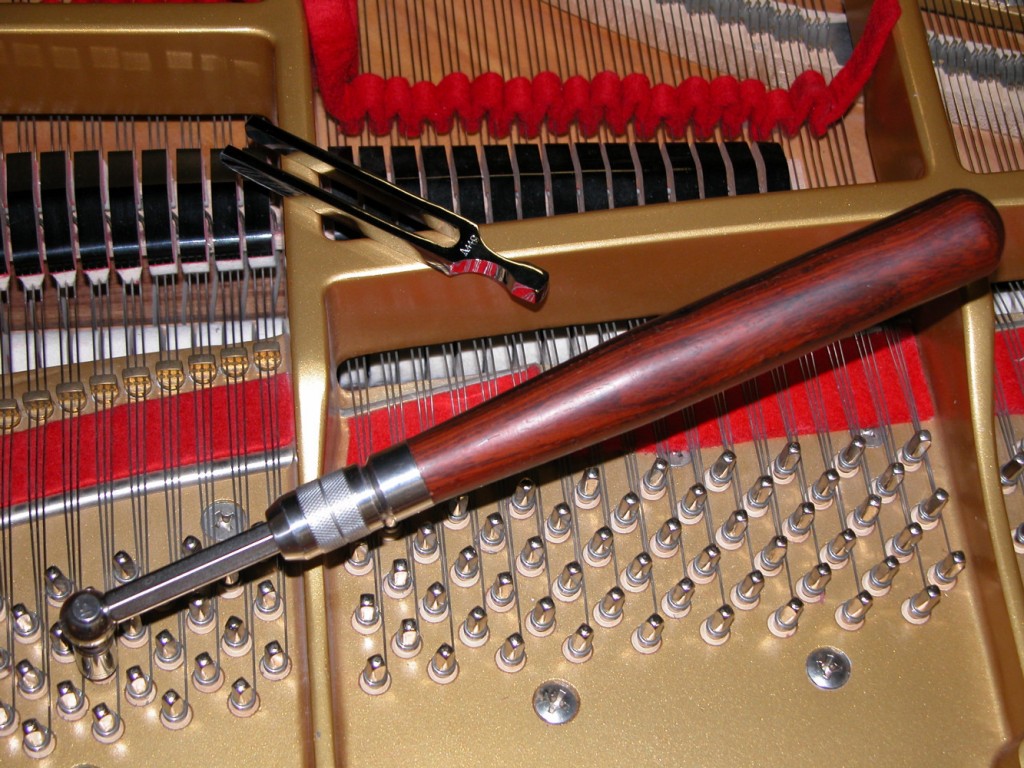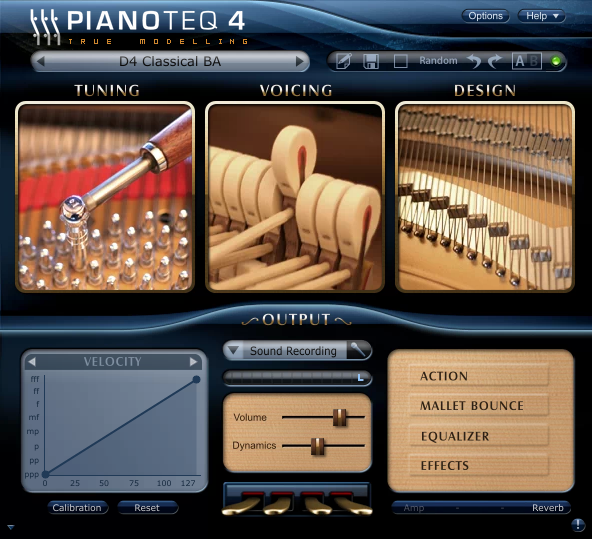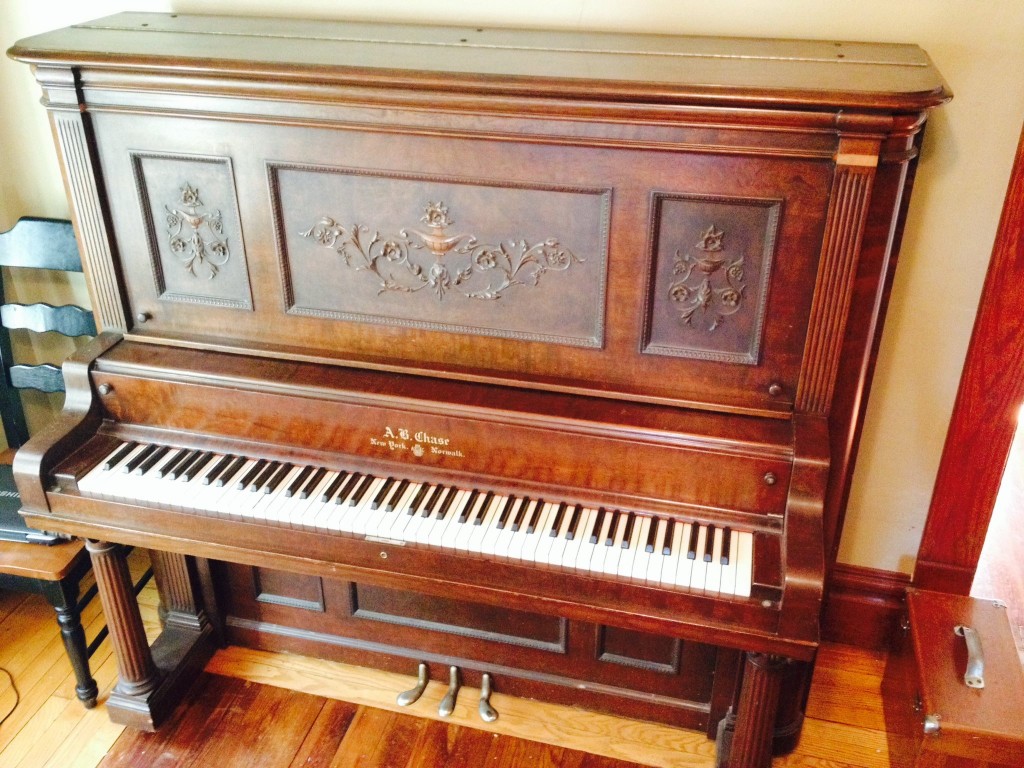… and a plea from a fellow musician.
I love technology. Though I sometimes feel musically anachronistic since I tend to favor styles from the past like 60s soul-jazz, 70s progressive rock, and 80s new-wave, I am absolutely enamored with modern music tech. I am thankful to be alive right now when you have access to an incredibly powerful recording studio in the palm of your hand on your tablet or on a desk via a laptop. It is truly amazing.
Like all technology, however, modern digital musical instruments / software exhibit pros and cons. The pros include obvious benefits like affordability, usability, flexibility, and high-fidelity. Ease of access is another biggie. I have sounds that emulate every classic keyboard instrument you can imagine, literally at my fingertips.

Steinberg Cubase 7.5 – My DAW of choice. If the engineers at Abbey Road had this back in the 60s…
The cons are a little less evident. The enormous wealth of options available can be paralyzing. What sound should I use for this particular section? Well, I could use a nice synth pad. Okay. A synth pad from what software synthesizer? And hours go by while I decide and scroll through endless presets.
I try to keep my collection of softsynths relatively small and yet I still routinely choose between PadShop, HALion Sonic (which contains numerous synth engines), Diva, Alchemy, Korg Monopoly, Zebra, FM8, Massive, or Dark Planet for that perfect pad sound. Oh yeah, I almost forgot; I also have the CS80V, Prophet V, and Oberheim SEM V available. And each of those synths has hundreds of different sounds to audition, not to mention the temptation to spend even more time making your own. And let’s not even mention my hardware synths. It can be truly overwhelming.
Another con is that despite some real stand-outs in the field (like Alchemy, Zebra, and PadShop), a lot of softsynths tend to sound mostly the same and feature the same categories and re-creations of sounds.
Beyond that is the nature of digital sound itself. What do I mean?
First a little backstory: When my father passed in 2008 I had been studying with him for about a year to learn the art of piano tuning. My dad raised his seven children with piano tuning, repair, and restoration. It’s a satisfying job and I always feel close to his memory when I tune especially since he bequeathed his tools to me. When I am home from touring, I sincerely enjoy tuning pianos, even the awful ones. Why? Because every single piano is different. Every one is a challenge. Every one requires special attention to bring out the best the instrument can offer. And each one sounds unique.
Which finally brings me to digital pianos. No one can dismiss the convenience of digital pianos. I’m utterly amazed and delighted that Casio makes something as great as the Privia PX-5s, which weighs a mere 23lbs, plays and sounds beautiful. How far the technology has come! Digital pianos are wonderful especially on the road. I certainly do not long for the old days of the CP70, RMI Electra-Piano, and Kurzweil K250. Modern digital pianos are also indispensable in the studio for songwriting and production.
So what’s my beef? My beef is the sound of pianos on modern recordings and how they all sound the same. I love the pianos on older recordings because they are real pianos and as I mentioned above, each one is different and has its own character. And every engineer miked and EQ’d them differently. I am especially sensitive to this on my prog rock project. I love the piano on Firth of Fifth by Genesis (and the iconic intro by Tony Banks). It sounds different than any other piano because it was a unique instrument, the tuning wasn’t always perfect on every note, and it had its own idiosyncrasies. In the age of digital, it is too easy to be perfect. This is true for singing (pitch correction software), drums (samples + beat detection / grid locking), bass (samples, amp sims, micro-editing), guitar (amp simulators and micro-editing), and everything else. But it especially bothers me when it comes to pianos, probably due to an increased sensitivity from years of tuning.
It seems like everyone tends to load up their favorite piano sample library and that’s that. For awhile the sample library Ivory was ubiquitous. I could tell when they (the engineer and artist) used it. And there’s nothing wrong with that per se. But the sample libraries, as good as they are, still miss that realness and individuality. They are too perfect and they are always the same, every time you load it; like little clones of each other on every recording. Or like everyone is recording the same piano on the same day with the same mics, pitch-corrected, gated, and mathematically perfect.
All this is to say (and perhaps justify to myself) that on my upcoming prog album, I will be recording a real piano. And if I can swing it, not just any piano but a beautiful 1913 AB Chase baby grand that I found and brought home in 2009. It’s small, yes. And it needs some work. But I fell in love with the tone when I first played it even though it was horribly out of tune. It is rich and full and beautiful. And most important, it is unique.
To get it ready, I am going to replace all 46 bass strings, most of the middle strings, the hammers, the dampers, and all the key punchings. I will also refurbish the smaller action parts and regulate everything. Once ready, I will move some furniture in our living room and place the piano in the middle. I will mic it with some high-quality mics (not sure which ones yet) and record all the piano parts that I already played and edited via MIDI. I’ve been using Pianoteq for the demos and it sounds great, but I want character, the kind of character only a real piano can give due to it’s individuality.
The AB Chase has been recorded before, on Greg Nagy’s last CD Fell Towards None. The part was very sparse and I purposely avoided the deadest of the 100+ year-old dead bass strings to make it work. It is one of my favorite tracks on the disc (the title track) because of the dark atmosphere the AB Chase created. But for the prog project, the piano needs to be in tip-top shape. It’s going to be played hard!
If I cannot get the AB Chase ready in time, I will rent a piano from a local dealer who specializes in restoring vintage Steinways, Mason & Hamlins, Chickerings, etc. I will find one that speaks to me in it’s own voice. It doesn’t even have to be a grand piano. Just the other day I tuned an old upright from the 1920s for a client (I forget the brand name but the company is long gone). While checking the tuning afterward I marveled at the gorgeous, warm tone from that old beauty, even with old dead bass strings and the original hammers. The old wood and steel and cast iron resonated in the room and spoke to me.
To my fellow musicians; use a real piano for recording whenever you can, even if it’s a little console, upright, or spinet (I used a Wurlitzer spinet on Root Doctor’s cover of I Wish It Would Rain and it was just perfect in that instance). Yes, that newly released sample library might sound amazing, but does it sound like you? Does it speak to you? Or does it make you sound like everyone else?





Totally agree… I would love to get the latest with silent mode from a Yamaha or other… I love my 6 ft Young Chang which stays out of tune as if to spite me… I had a Beautiful Wurlitzer grand … 1906 and I wore that puppy out..
Hi Jim – First. let me say I so enjoy your organ playing! I discovered you while researching clonewheels but now I just listen to your recordings! Great!
I also enjoy tuning pianos and still gig at age 71 and I mostly agree on your view of pianos used in recording. I settled on Pianoteq ( a real piano is impossible where I live) mainly because of the dynamics, perfect tuning and sustain (D4). This instrument is the first non acoustic piano that I find comfortable for classical music. I’m pretty sure I would gladly use it for recording and use a heavy duty plugin, such as Ivory for the sound.
Hi Jim:
I totally agree, I owned an upright spinet and a player grand upgright (the player mechanism was long removed). When my parent bought their first house my spinet moved there too and we discovered the player piano down the basement.
My parents had it tuned and restored and it had a beautiful full tone better than my spinnet as it use a full grand piano harp and the tone was gorgeous. My spinet had the shorter “baby grand” harp and was brighter in sound but still beatiful as well.
When my parents moved I took the spinet with me to my new home and the upright player grand stayed in the basement:( and went to the new owners.
I had many band practices down that basement and while I never recorded it, we did practice some songs using it but alas we couldn’t take it on gigs.
One of my wife friend has a baby grand she is going to leave in her will for us. But I’m not in a rush for it as I’ve not room at present in my current situation for it. But someday I will have that baby grand and will be playing a real piano again.
I have to start taking out my old music lesson books and start practicing again.
Great post Jim. Character is something acoustic instruments do better than digital. As a kid, I learned a lot from an Otis Spann record where he played a dark, slightly-out-of-tune upright with a tone that still haunts me. When different records had different tones because of the circumstances at the session, there was more room for magic. Obviously, in today’s world convenience trumps inconvenience, imperfections, chance, and a lack of control that can lead to satisfying surprises.
So…my Yamaha C3 needs tuning and I use the Addictive Keys plugin. It’s great! I can choose from a grand, an upright or a Rhodes, swap and adjust the virtual mics, detune it slightly…far more choices than I have use for. I’m happy I got it and I’ve used it on a number of projects. But when I want to make my own statement on record I tune my grand, spend time adjusting mic placement, play as well as I can that day and sound like nobody else.
Hi Jim – enjoyed your ruminations as both a fellow tuner and keyboard player. I come away from a gig playing my Roland RD-700SX feeling quite unsatisfied with the sound…part of that is the sound of the fixed tuning (which I want to analyze with an ETD), and part the touch which has no dynamic ‘feedback’. It is simply not a piano and I may try the Pianoteq soft synth if it gives some control over the tuning. I even feel the same way about Yamaha Avant Grands which have advanced the technology a long way towards getting the sound and touch right but still…no aftertouch, sympathetic vibration in the frame/soundboard…etc etc. There is no substitute for a piano. A friend recently came and recorded a track for her new album on the Howard/Baldwin grand in my living room. All those Beatles recordings made on either an old Beckstein grand or Challen upright would not have the same magic on a sampled piano.
I couldn’t agree with you more – I’m constantly on the lookout for the one piano that speaks to me. I spent the better part of an afternoon once playing this completely beat-up upright that was in an alley and, if I had a truck, it would be in my garage right now. Maybe even sitting in the yard all summer under the wisteria; it just had that kinda vibe about it. I’ll take character over perfection any day of the week.